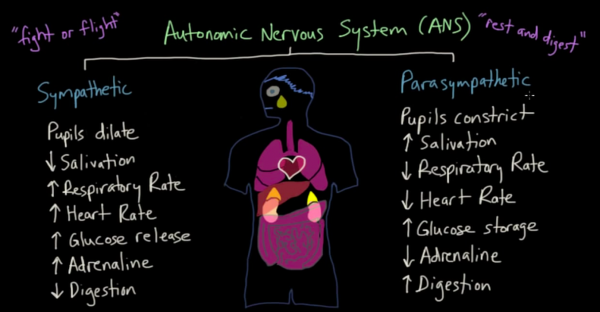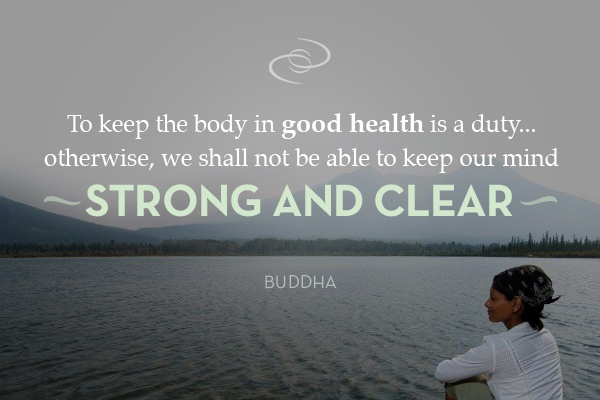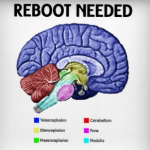Short fuse, long fuse, everyone has one. There is no person on earth who doesn’t have a limit before getting irritated and then becoming angry. The only interesting question is how come someone’s reservoir of patience is much deeper than someone else? How come one gets irked and blows up from a sound of cat’s nails tapping on the hardwood when another one can take Chinese water torture for days and still keep their cool?
You might point out the obvious – patience! But patience is a finite resource. Besides, if one is not experiencing any irritation from an obvious trigger then what’s there to be patient about? The answer lies within our nervous system (NS). It is our NS that determines how comfortable we are in our bodies. In scientific terms a nervous system is responsible for “sending, receiving, and interpreting information from all parts of the body; it monitors and coordinates internal organ function and responds to changes in the external environment.”
In simple terms NS is intricately linked to our perception of things whether we’re aware of it or not. My past three years of struggle with health and insomnia has definitely taught me many lessons about the role that our nervous system plays in self control. Insomnia, especially, hits the NS like a bulldozer and makes one into a walking zombie. This is where I had the fortune to put all of my thus far accumulated “anger mentor” wisdom to the test.
It didn’t take long to notice that following a sleepless night my fuse was extremely short. I basically already got out of bed irritated and pissed for having gone through a night of counting sheep from 10pm to 6am. Now I hate sheep. When I see a field full of sheep I still lough and say I’ve counted way more than I can see on the horizon. I’ve tried an insane amount of things to overcome my insomnia and it is still a mystery to me but in a way, I’m also grateful for it because it taught me so many things about my body and health.
Basically, insomnia wreaks total havoc on your NS, your gut health, adrenal health, your liver, your neurotransmitters, etc. My body was in a constant tired but wired mode until it went into total exhaustion. So during all this ordeal I couldn’t help but watch how all of my self control was evaporating and no amount of meditation and Buddhist wisdom help me to get it back. Not to say that I lost confidence of my spiritual path, it was just no longer a priority. However, this entire ordeal has ingrained in me that there can be no spiritual path without a healthy vessel. Our body needs to have all organs and nervous system functioning at optimal for us to be able to control our emotions, especially such as anger.
Our health of our nervous system plays a major role in anger management. Stable and calm NS equals self control, while out of whack NS equals very short fuse and huge anger issues. This simple fact makes this whole “anger management” effort much more predictable and less esoteric.
Now, what determines the health of our nervous system? This, perhaps is a topic of an entire book but I’ll share with you a few things here.
In basic terms it is very important to understand that our nervous system is made out of three parts: somatic nervous system – responsible for transmitting signals from the central nervous system to skeletal muscles, and from receptors of external stimuli, such sight, hearing, and touch; autonomic – occurring involuntarily, basically without conscious control; and peripheral nervous system – consists of nerves and outside of the brain and spinal cord.
To me personally, the most mystifying and interesting is the autonomic type (ANS) which controls the activities of organs, glands, muscles, heart, etc. without any of our conscious effort. In fact, it is called “autonomic” because it is said to be autonomous from our wishes or desires. Want to know what I mean? Next time you get upset try to will yourself out of that emotion? Can’t? That is because your ANS has a program of its own.
The ANS consists of two divisions: the sympathetic nervous system which is involved in the stimulation of activities that prepare the body for action, such as increasing the heart rate, increasing the release of sugar from the liver into the blood, and the fight-or-flight response (you know, the one that makes a split second decision whether to punch someone or run like hell. The other is the parasympathetic nervous system which activates the calming functions, and basically makes you “simma down now” you know, chill….

Source: Khan Academy of Medicine
Why it is good to know these things? Well because almost everything you do, eat, think, or experience activates either your sympathetic or parasympathetic response. If you keep activating only the sympathetic one you’re going to go into overdrive mode and lose control over your body and emotions.
If you’re on certain meds, overindulge in alcohol, play with drugs, get involved in arguments and all sorts of dramas of life you’re constantly irritating your nervous system and your fuse will be short no matter what. If you’re not carefull, your nervous system can literally attack you.
I’ve always loked funny at some of my friends who party into the night then load up on caffeine in the morning and pretend to meditate. This is not meditation but more like traveling by hanging on to an airplane wing outside of the aircraft, rather than kicking back in the first class cabin. You just can’t meditate when your body is exhausted but your nervous system is amped-up by stimulants. I’ve heard of some yogis who drink a lot chung (barley beer) and it doesn’t affect their mind but it is only because they have stabilized their mind (usually years and years in secluded meditation) prior to drinking buckets of beer so whatever happens in their bodies they are able to keep a distance from physiological processes, but we wouldn’t be able to do it because we’d identify with the body right away and act on it out of deep rooted habit.
We’re not those yogis (yet) so our first step towards managing anger must always be physiological and that means proper nutrition, some exercise and avoiding things that overstimulate our nervous system (sympathetic type.)
This is a bit embarrassing to admit but when my nervous system was ravaged by insomnia I had quite a few fights with my wife. Then I realized this was making things even worse so I did everything I could to protect my nervous system and her sanity. I would even go as far as sticking in a pair of air plugs when I couldn’t avoid my wife being upset over something (usually me). That dampened the pain from the sounds and I would even look away so that my brain wouldn’t mirror her anger. A bit rude? Maybe, but I explained to her what I was doing and she got it.
Point is you have to protect your fragile nervous system at all costs. This means watch your health. Eat nourishing foods (wrote an article before), try supplements such as chelated magnesium, various adaptogens like aswhaghanda, he shou wu, rhodiola. Get enough sleep, learn to meditate, try yoga, do qi gong, do everything you can to balance out your nervous system and bring it into coherence.

Once your nervous system is calmer you’ll feel like a new person, and your health will improve in general. You will find that you’ve become more stable, no longer lose your temper as readily, and are able to put up with situations you weren’t able to put up with before. And that will be way more beneficial and meaningful than any extra cup of coffee, a long night out drinking with friends, or a totally hopeless fight with your partner.
And finally, we must always remember that no amount of philosophy or theories will help us with better emotional control if we don’t practice. So our main aim should be to make our bodies, nervous system and mind healthy and then practice the methods for self transformation.


 How Would Buddha and Jesus Handle Pissed Off and Difficult People in Today’s Crazy World?
How Would Buddha and Jesus Handle Pissed Off and Difficult People in Today’s Crazy World? What You Need to Know About Your HPA Axis in Order to Manage Irritability More Effectively
What You Need to Know About Your HPA Axis in Order to Manage Irritability More Effectively Curious Facts About What Science Says About Your Brain and Anger
Curious Facts About What Science Says About Your Brain and Anger